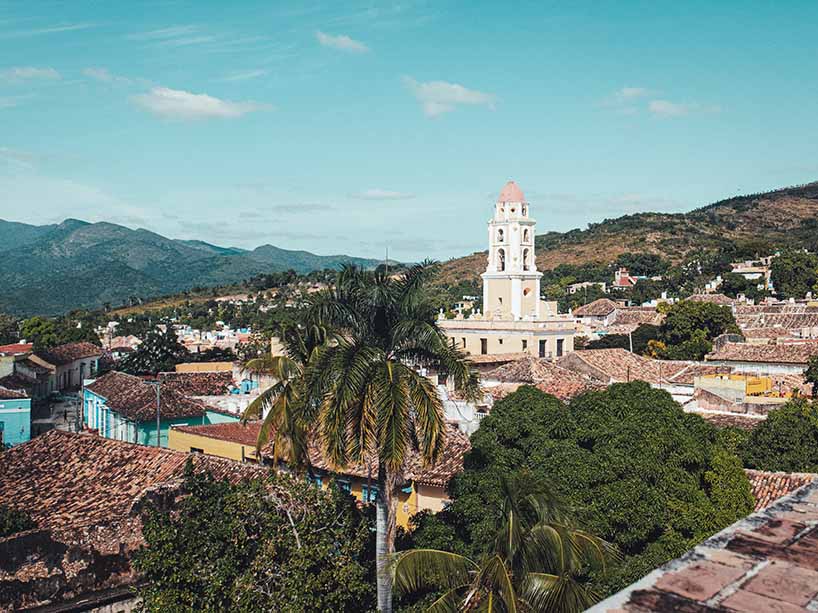New global learning program opens opportunities for equity-deserving students

Forty-five students will be selected to participate in the GJC program for the 2023 cohort (each course is capped at 15 students).
A new TMU study program opens up more opportunities for equity-deserving students to benefit from global learning experiences.
The new Global Justice and Change (GJC) program fully funds global opportunities - in the classroom and abroad. This means that all selected participants will receive funding to cover the cost of tuition, travel, accommodation, and other key expenses as relevant to each course. Applications are open to Canadian citizens and permanent residents who self-identify as Indigenous, Black, or racialized, students with disabilities, and low-income students.
“The GJC program seeks to address a variety of student needs and barriers to participation when engaging in global learning,” says Emma Wright, manager of global learning and engagement at TMU. “It is fully funded, open to students from all faculties and disciplines, advances access and inclusion, includes workshops and peer to peer support, all while offering credit through courses with experiential learning opportunities both abroad and in the classroom. It is ambitious, innovative and iterative, shaped in part by its participants.”
The GJC program will allow eligible undergraduate students to choose between one of two spring 2023 intensive travel courses in either Panama or Trinidad and Tobago or a winter 2023 course that includes virtual collaboration with counterparts in the Caribbean.
The opportunity in Panama will introduce students to the importance of film as a window into a culture and film festivals' role in providing platforms for those advocating change. This course’s international travel experience in Panama offers students direct contact with the region and the creators who bring their stories to cinematic life.
In Trinidad and Tobago, students will explore the central role that Caribbean women have historically played in agriculture while identifying ways they can take advantage of the post-pandemic agricultural resurgence. During visits to various agricultural projects in Trinidad and Tobago, students will speak to local producers about barriers and opportunities in making food security a reality in the region.

This program is about ensuring that all students have access to the benefits of global learning.
For the virtual collaboration option in the Caribbean, students will engage with literary texts (short stories, poems, and a novel) as well as films and music to better understand how migrations and mass movements have affected the identities (especially ethno-racial, sexual, and gendered) of peoples in the English-speaking Caribbean and its diasporas.
Wright says if students have struggled to access global learning as part of their degree program, whether due to financial barriers or a lack of opportunities for credit, the university encourages them to apply. If they are curious or excited, but also apprehensive about the experience, the global learning team will support all participants to address their unique concerns, fears and circumstances.
The program is funded by the Government of Canada’s Outbound Student Mobility Pilot Program and led by TMU Global in collaboration with the Faculty of Arts and the Faculty of Community Services.
Students can attend an online information session on October 3 at 12 p.m. (register here) or email global.learning@torontomu.ca for more information. Applications are open until October 14 at 11:59 p.m. EDT.
Related stories:
